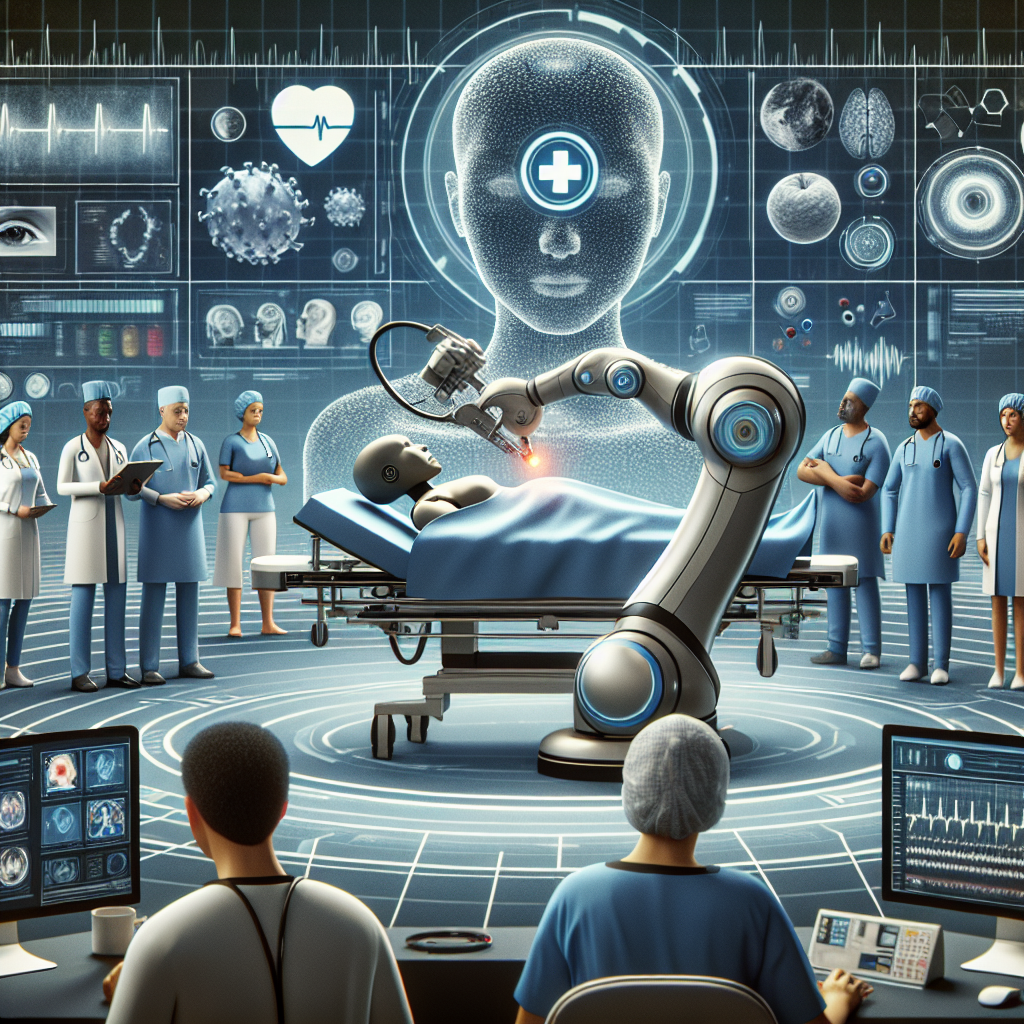AI in Healthcare Risk Management: Revolutionizing Patient Safety
Introduction
In recent years, the rapid advancement of artificial intelligence (AI) technology has revolutionized various industries, including healthcare. One of the key areas where AI is making a significant impact is in healthcare risk management. By leveraging AI-powered tools and algorithms, healthcare organizations can better identify, assess, and mitigate risks, ultimately improving patient safety and outcomes. In this article, we will explore the role of AI in healthcare risk management and its potential benefits for both patients and healthcare providers.
The Role of AI in Healthcare Risk Management
Healthcare risk management is the process of identifying, assessing, and managing risks that could potentially harm patients, healthcare providers, or the organization as a whole. Traditionally, risk management in healthcare has relied on manual processes and subjective judgment, which can be time-consuming, error-prone, and inefficient. AI technology offers a more streamlined and data-driven approach to risk management, enabling healthcare organizations to proactively identify and address potential risks before they escalate into serious incidents.
One of the key roles of AI in healthcare risk management is in predictive analytics. By analyzing large volumes of data from electronic health records, medical imaging, and other sources, AI algorithms can identify patterns and trends that may indicate potential risks or adverse events. For example, AI-powered tools can help healthcare providers predict which patients are at risk of developing complications during surgery or who are likely to be readmitted to the hospital after discharge. By identifying these risks early on, healthcare organizations can take proactive measures to prevent adverse events and improve patient outcomes.
Another important role of AI in healthcare risk management is in decision support. AI-powered tools can provide healthcare providers with real-time recommendations and insights to help them make informed decisions about patient care. For example, AI algorithms can analyze a patient’s medical history, lab results, and other clinical data to suggest the most appropriate treatment plan or medication dosage. By leveraging AI-powered decision support tools, healthcare providers can reduce the likelihood of medical errors, improve patient safety, and enhance the quality of care.
AI technology is also being used to automate and streamline various aspects of healthcare risk management, such as incident reporting and investigation. AI-powered tools can help healthcare organizations collect and analyze data on adverse events, near misses, and other incidents, allowing them to identify root causes and implement corrective actions more efficiently. By automating these processes, AI can help healthcare organizations save time and resources, while also improving the accuracy and effectiveness of their risk management efforts.
Benefits of AI in Healthcare Risk Management
The adoption of AI technology in healthcare risk management offers a wide range of benefits for both patients and healthcare providers. Some of the key benefits of using AI in healthcare risk management include:
1. Improved Patient Safety: By proactively identifying and addressing potential risks, AI technology can help healthcare organizations prevent adverse events and improve patient safety. AI-powered tools can help healthcare providers make more informed decisions about patient care, leading to better outcomes and reduced harm.
2. Enhanced Efficiency: AI technology can automate and streamline various aspects of healthcare risk management, such as incident reporting, investigation, and analysis. By leveraging AI-powered tools, healthcare organizations can save time and resources, while also improving the accuracy and effectiveness of their risk management efforts.
3. Better Decision Making: AI-powered decision support tools can provide healthcare providers with real-time recommendations and insights to help them make more informed decisions about patient care. By leveraging AI technology, healthcare providers can reduce the likelihood of medical errors and improve the quality of care.
4. Cost Savings: By preventing adverse events and reducing the likelihood of medical errors, AI technology can help healthcare organizations save money on potential litigation costs, fines, and penalties. By investing in AI-powered risk management solutions, healthcare organizations can reduce their overall risk exposure and enhance their financial stability.
Frequently Asked Questions (FAQs)
Q: How can AI help healthcare organizations identify and assess risks?
A: AI technology can analyze large volumes of data from electronic health records, medical imaging, and other sources to identify patterns and trends that may indicate potential risks or adverse events. By leveraging AI-powered tools, healthcare organizations can proactively identify and assess risks before they escalate into serious incidents.
Q: What are some examples of AI-powered tools used in healthcare risk management?
A: Some examples of AI-powered tools used in healthcare risk management include predictive analytics algorithms, decision support systems, and incident reporting and investigation software. These tools can help healthcare organizations improve patient safety, enhance efficiency, and make better decisions about patient care.
Q: How can healthcare providers benefit from using AI in risk management?
A: Healthcare providers can benefit from using AI in risk management by improving patient safety, enhancing efficiency, making better decisions about patient care, and saving money on potential litigation costs. By investing in AI-powered risk management solutions, healthcare providers can reduce their overall risk exposure and improve the quality of care.
Conclusion
The role of AI in healthcare risk management is becoming increasingly important as healthcare organizations seek to improve patient safety, enhance efficiency, and reduce costs. By leveraging AI-powered tools and algorithms, healthcare organizations can proactively identify and address potential risks, ultimately leading to better outcomes for both patients and healthcare providers. As AI technology continues to advance, its impact on healthcare risk management is expected to grow, revolutionizing the way healthcare organizations manage risks and ensure patient safety.

